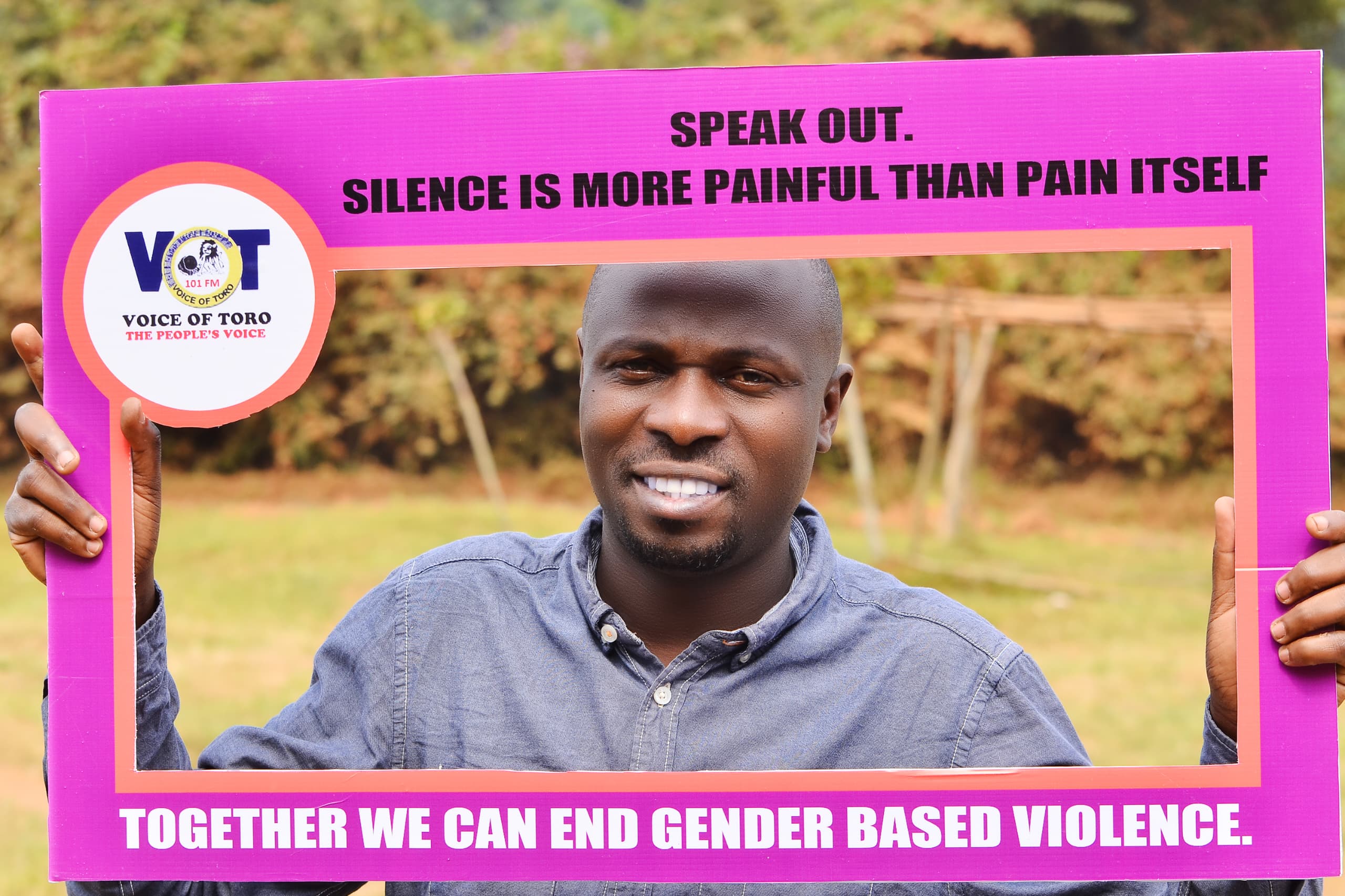
How awareness campaigns Empowered Oliver to confront work place Harassment.
BY: POLITE MUSA.
A workplace is ideally meant to foster productivity, growth, and individual fulfillment of employees as they contribute to the overall goals of an organization. However, when the environment turns toxic, employees are deprived of their right to feel safe, leading to demotivation and a lack of productivity.
The Impact of a Toxic Environment in Workplaces
Employees in a toxic work environment face hostility and negativity, which impacts their well-being and productivity, causing stress, anxiety, and fear.
Without the growing awareness campaigns against sexual harassment in workplaces, Oliver Kebirungi would have lost her job prematurely. “Continuous media conversations about sexual harassment in workplaces gave me courage. I had initially feared to tell anyone, yet my work energy was steadily declining,” Oliver narrates.
Speaking Out and Seeking Help
The 32-year-old single mother works in the news department of a commercial radio station in Fort Portal. Due to the layout of her desk, every time she came into the office, the first person she would see was her harasser, which immediately set a negative tone for her day. After refusing her immediate supervisor’s advances, she started receiving threats from him.
“He would even follow me outside work. One day, while I was out with some friends, I realized he had followed me ” she recounts.
Kebirungi’s harasser used his regular meetings with the general manager to speak negative of her. He complained that Kebirungi’s output had declined at work because she had romantic affairs with many men , leading to reduced performance.
“He was determined to make me lose my job. He bragged about having influence on who leaves or stays working with the company. He kept mentioning my name in those that have jobs at his mercy”. she said.
One morning, the manager called her to his office. To her surprise, her Harasser was also present. She was accused of having lost focus at work and warned to improve herself and meet all targets or loose the job.
“I broke into tears and, unable to hold it any longer, I excused myself from the manager’s office silently. I spent a week without reporting to work just wondering if speaking out would get me back esteem and job ,” she narrated.
Kebirungi had decided to leave the job until she decided to report to the to one of the top supervisors who was female.
“I had all the messages that he had sent me over the past three months. My top supervisor scheduled a meeting with the manager, my harasser, and i. After presenting all the evidence, my immediate supervisor was suspended for a month and asked to write an apology and commitment to zero sexual harassment at work. By the time he came back to work, I had stabilized at work, performing well” Oliver noted.
The Role of Awareness and addressing the challenges
Mr. Tom Muhumuza, the Fort Portal city senior labor officer, says everyone in the workplace is prone to sexual harassment, including workers in both low and high managerial positions, service providers, and others interacting with the workspace.
He notes that after repeated radio engagements and community dialogues, there is some increase in the number of people coming forward to report sexual harassment at workplaces . ‘‘ journalists who are passionate about gender equality like the Gender Desk at Voice of Toro are helping greatly in raising awareness. These collaborations play a great role and we do encourage them’’ Tom noted.
Despite the increase in reports, there are still challenges. Muhumuza highlighted issues like understaffing and insufficient budgets, which prevent comprehensive follow up and workplace engagements and inspections.
Lennah Naddunga, the project coordinator at FIDA Uganda, emphasizes the importance of awareness raising and reporting sexual harassment which is under reported in most work places.
FIDA Uganda is taking various measures to address sexual harassment in the workplace. These include empowering and supporting employers to develop and implement policies to prevent and respond to sexual harassment cases, conducting trainings, capacity building, and raising awareness for employees and other stakeholders to understand their rights and demand justice against sexual harassment, and building the capacity of employers to establish clear reporting mechanisms and ensure confidentiality and support for survivors.
According to Naddunga, these efforts encourage a culture of respect, equality, and zero tolerance for harassment in workplaces.
“These issues stem from deeply rooted cultural and social norms that perpetuate gender-based violence and discrimination even outside the workplace,” Lenah asserted.
Addressing them comes with numerous challenges, including limited awareness and understanding of what constitutes sexual harassment. Many behaviors have been normalized, leading people to think they are acceptable. Retaliations, such as stigma for reporting sexual harassment, also pose significant obstacles.
Despite a slight increase in reporting, Naddunga notes that most employees do not report sexual harassment due to fear of job loss, inadequate policies, resources, and support systems in workplaces, which exacerbate the issue.
“Power imbalances and hierarchical structures perpetuate sexual harassment and silence survivors. Employers often intimidate employees from reporting sexual harassment cases,” she adds.
The hospitality sector is particularly affected. FIDA Uganda’s baseline study on workplace gender-based violence shows that sexual harassment is most prevalent in this sector, affecting many women and girls who are treated as sexual objects.
The 2012 Labor Code stipulates that sexual harassment is prohibited in the workplace and includes regulations that give employees who are victims of sexual harassment the right to unilaterally terminate their labor contracts. However, the current legal framework remains too general, lacking definitions and specific indicators to determine what constitutes sexual harassment. Consequently, it is difficult to prevent and address sexual harassment and cope with violations.


